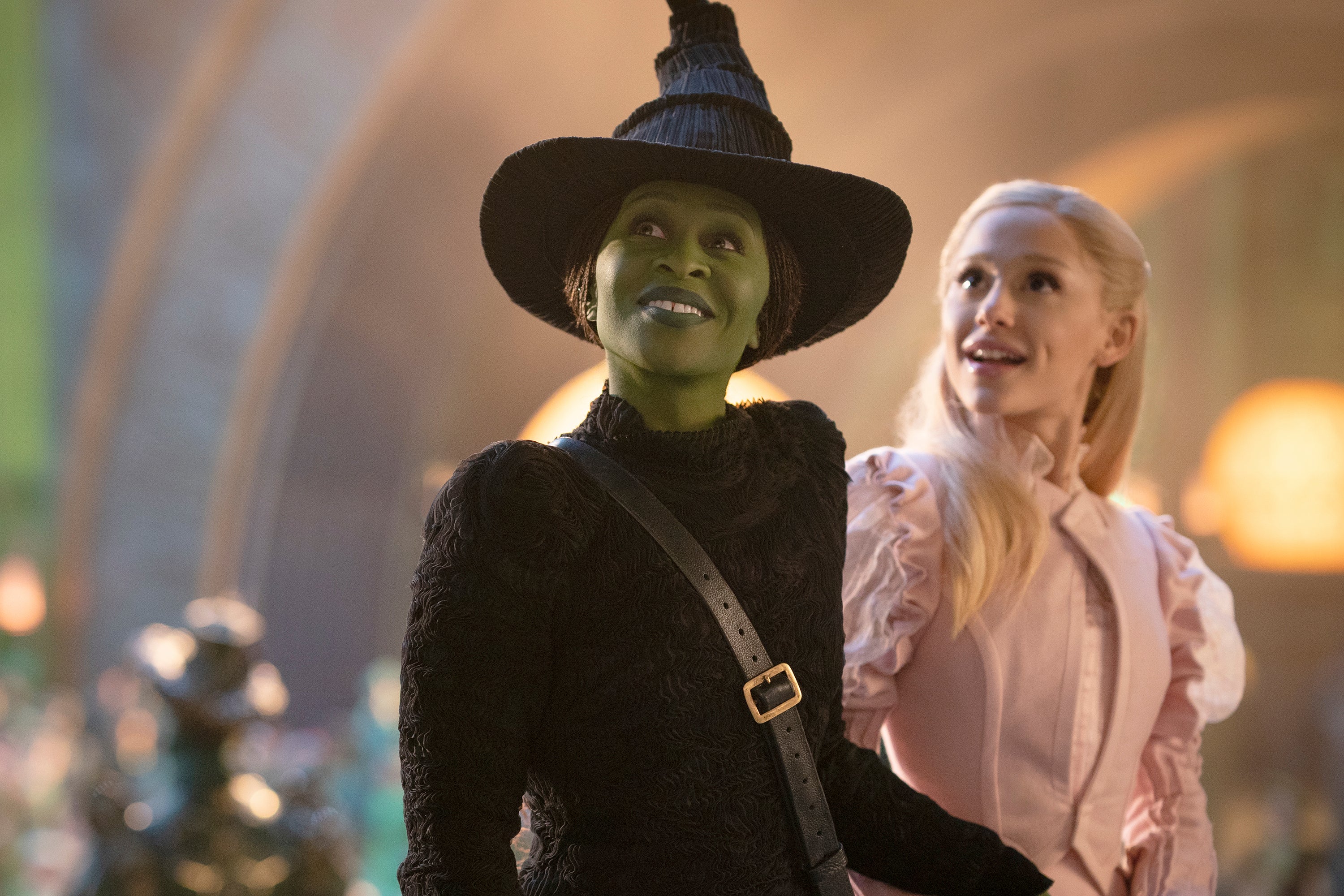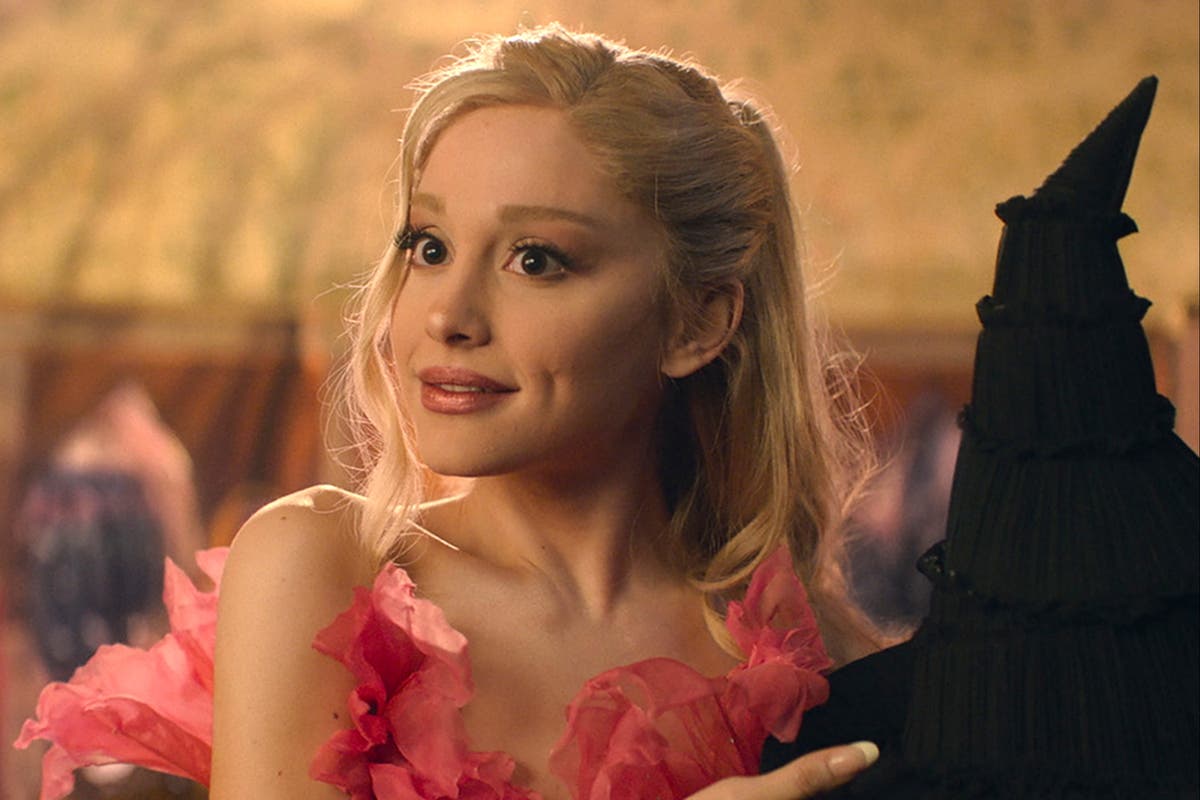A movie musical becoming a huge hit in the year 2024? It’s the sort of twist that devotees of the long-ailing genre have wished for – but they might just regret picking up that monkey paw. Wicked, the first of two films adapting Stephen Schwartz’s stage musical phenomenon, is shaping up to become one of the year’s biggest films, fuelled by, among other things, the fervid fan culture surrounding one of its lead actors, pop star Ariana Grande. But the Wizard of Oz prequel’s success has not been without its controversies, particularly concerning the matter of cinema etiquette – or lack thereof.
Screenings of Wicked have, in many cases, prompted a sort of interactive approach from audiences. When they’re not getting turned away at the door for wearing green face paint (Ozplaying, as it were), enthusiastic cinemagoers have been singing along with the musical numbers, to the inevitable irritation of others. Cynthia Erivo, Grande’s co-star, has given these auditorium warblers her blessing, as has Moana 2’s Dwayne “The Rock” Johnson. (Grande has yet to weigh in.)
Others have castigated them for disrupting the sanctity of the cinema experience. What could be worse than having the film’s acrobatic glissandos overdubbed in surround sound by off-key amateurs? This trend, though, was always bound to happen when cinema collided with the world of pop fandom.
This is not to single out Grande’s fans, known as Arianators, as the sole problem. But it does speak to an unsteady change in how big tentpole releases are being framed – not as films to be watched, but as experiences to be attended: cinema as not art but event.
This was the secret to the success of Barbie last year, which landed at the box office like a 50-megaton glitterbomb. (Universal has admitted that Wicked tried to specifically ape Barbie’s marketing strategy, and it has, to a large extent, worked – with the film’s target demographic skewing more towards younger women.) And it’s this same ethos that has made recent concert films such as Taylor Swift’s Eras so very lucrative. Eras, however, was explicitly marketed as “Event Cinema”, a designation that meant multiplexes could charge twice as much for admission as regular films. But Wicked is not an event. It is a movie.
There is always going to be something inherently performative about singing aloud in a cinema. Pop fandom in a greater sense is awash with performativity; it clusters upon the urge to be seen as the biggest fan, the most ardent, the most knowledgeable.
It’s no coincidence, of course, that the behaviours of modern fandoms have intensified in the age of the internet, itself a fundamentally performative space. But movies are not designed for this; they are a one-way street. More so than, say, a live pop concert – where artists are able to register the enthusiasm in the cheers of their audience and have, to some degree, a shared experience – a movie can only transmit, not receive. (The same can largely be said of the theatre: last year, “disruptive” audience singing at a production of The Bodyguard starring Pussycat Dolls’ Melody Thornton caused a “riot” to break out in the crowd.) So who, then, is this performance for?
The confluence of cinema and pop fandom has brought more than just etiquette infractions, too. Fan communities are often locked in vitriolic warfare with those of rival pop stars. Following Wicked’s release, a number of film critics in the voting body for the Critics’ Choice Awards were cold-emailed by someone claiming to offer them four-figure cash bribes in exchange for nominating Grande for an award. The emails were, many have presumed, sent as a smear by fans of another pop star, in full knowledge that the brazen corruption solicitation would be shared around. Grande fans were up in arms; rival fans were up in arms; mud has been slung, and all of it is so deeply pointless.
With all this noted, we should be careful about overstating the cross-medium sway of pop music fandoms. As recently as last month, DC Comics sequel Joker: Folie à Deux died a death at the box office, despite the starring role given to Lady Gaga, one of the most powerfully fandomised celebrities out there. The involvement of Selena Gomez, likewise, has not really been enough to propel Netflix’s polarising awards hopeful Emilia Pérez to the mainstream. And even Taylor Swift was unable to make the calamity that was Cats purr.

Watch Apple TV+ free for 7 days
New subscribers only. £8.99/mo. after free trial. Plan auto-renews until cancelled

Watch Apple TV+ free for 7 days
New subscribers only. £8.99/mo. after free trial. Plan auto-renews until cancelled

Ever since Covid, movie studios have hunted for the best way to reinvent their product. Ticket sales are yet to fully recover, and superhero movies – the industry’s reliable cash-cow genre for over a decade – have proved increasingly inconsistent at the box office. They need to adapt to survive. It’s already obvious that Barbie will have long and far-reaching implications when it comes to this corporate Darwinism; studios will doubtless be looking at Wicked as another formula to replicate. All of which is to say: it’s time to order some merch, get on the messageboards and limber up those vocal chords. Fandom cinema is here to stay, and it’s singing at the top of its lungs.
‘Wicked’ is in cinemas now

